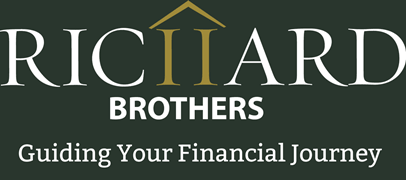 For many professionals, the early 30s is a time when they begin earning a better salary, raising a family and looking for a larger home. That’s also a time when it’s easy to get distracted by the day-to-day decisions and make mistakes that have a negative impact on their financial goals.
For many professionals, the early 30s is a time when they begin earning a better salary, raising a family and looking for a larger home. That’s also a time when it’s easy to get distracted by the day-to-day decisions and make mistakes that have a negative impact on their financial goals.
Here are three common mistakes to avoid when you have a young family:
Making Smart Financial Decisions
The most important financial advice for young families is to look ahead and make decisions that benefit the family in the long run. When it comes to planning for retirement and saving for a child’s education, it’s a marathon, not a sprint. Even when you’re juggling the costs of raising children, you must have a reasonable amount going into your retirement accounts and a college fund.
When you’re making decisions about purchases, take a deep breath and make sure you understand your current financial position. Assess your spending and finances week after week, month after month, and use this information to make realistic choices.
Getting Started With Life Insurance
Life insurance is an important tool in planning your financial future, especially when you have yourselves and your kids to support. The younger you are when you purchase the coverage, the better price you get. With that said, insurance is grossly underused, but also grossly oversold. The life insurance plans offered by many employers aren’t a good long term-solution. You should get your own plan that’s not affected by whether you’re still working at the company.
In terms of how much life insurance you should carry, the first step is to have at least enough to cover your current debts. Those debts don’t disappear after you die, and you don’t want them to burden your family. Next, look at what you could afford in terms of replacing your own income. Let’s say you make $60,000 this year, and plan to work for another 30 years. That’s $1.8 million in income that your family is relying upon. How much of that income you insure depends on several factors, but the first step is making sure you cover your debts.
Beginning To Save For Education
As with saving for retirement, it’s important to set up an education savings account as soon as possible. When you’re getting an early start, the amount of money you’re putting in could be as low as $50 per month. Another reason to start early is that family members often like to give gifts to a newborn, and it’s great if you’re able to say, “We don’t need anything more for the baby’s room, but we’ve set up a college fund.” You set up the account, but anyone in the family is able to contribute.
There are a variety of options when it comes to saving for education and retirement, including variable universal life investment, which is a combination of investment and insurance. Over time, the money you put in grows in value, because it’s invested in mutual funds. If the kids don’t need this money to pay for college, you’re able to use it for your own retirement. This is just one way to make sure you have insurance, retirement and college savings in place, supporting your family’s financial future.
To secure your family’s financial future, you need a smart strategy and plans to mitigate potential risks. Download our Checklist For Securing Your Family’s Financial Future.
Richard Brothers Financial Advisors


